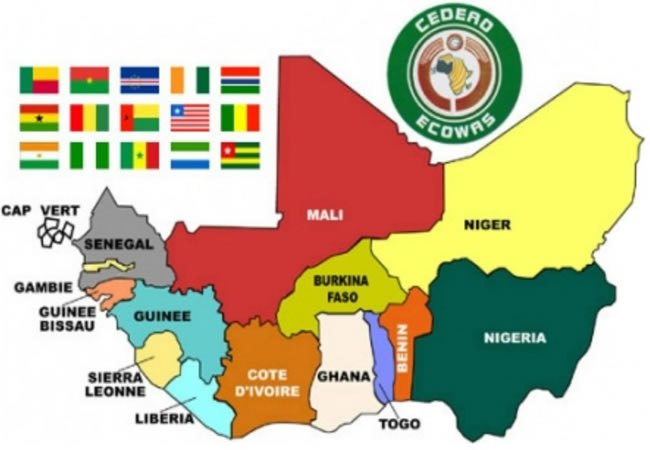 A Joint Committee of the Parliament of the Economic Community of West African States (ECOWAS), has adopted the abolition of residence permit system within the subregion.
A Joint Committee of the Parliament of the Economic Community of West African States (ECOWAS), has adopted the abolition of residence permit system within the subregion.
This is contained in a Draft Report produced at the end of its delocalised meeting in Banjul, The Gambian capital city on Thursday.
BRANDPOWER reports that the Joint Committee comprises the parliament’s standing committees on Trade, Customs, Free Movement, Social Affairs, Gender and Women Empowerment, Legal Affairs.
When stakeholders convened to discuss ECOWAS rebellious members reintegration
Others are Human Rights, Political Affairs, Peace, Security, the African Peer Review Mechanism (MAEP), Legal and Human Rights, committees.
According to the draft report, the residence permit is constituting a hindrance to the free movement of the community’s citizens within the region which was envisaged by the protocol that established it.
The Committee’s draft report, which is subject to the consideration of plenary, the ECOWAS Commission, and member states, therefore, recommends that the residence permit should be abolished outright.
The lawmakers also proposed the staging of robust sensitisation campaigns to educate citizens and relevant government officials on regional texts, such as the Protocol on Free Movement as contained in the draft report.
“The issuance of residence permits should be completely abolished in the region in conformity with the Community Text.
“The Free Movement Protocol should be made available to all Immigration Officers, especially at the border posts.
“All training programmes of Immigration and Customs officials should include training on the relevant Community Texts,” the draft report reads in part.
The report also contains a recommendation by the parliamentarians proposing the deployment of officials at border posts to observe, record and report incidences of extortion and other malpractices, which are inimical to the free movement protocol.
It also proposes that the ECOWAS Commission should ensure that all signed Community Texts by the Authority of ECOWAS Heads of State and Government are implemented by member states.
The report further tasks the ECOWAS Commission on ensuring that all member states comply with the implementation of the ECOWAS Biometric Identification Card.
It also proposes that the Commission and Parliament should conduct review exercises of all signed Community Texts at the national level, in order to minimise the level of contradictions between the regional Texts and national laws.
Earlier in the week, the Joint Committee had held town hall meetings with stakeholders, as well as interactive sessions with border officials in The Gambia and Senegal.
This was to enable the lawmakers to know firsthand the level of implementation of the ECOWAS free movement protocols with the view to mitigating the challenges hindering their full implementation
The move was sequel to loud outcries among Community citizens across the bloc over the non-implementation of the ECOWAS free movement protocols at member states’ borders.
BRANDPOWER reports that the ECOWAS Residence Permit, otherwise called the ECOWAS Residence Card, is a document issued to the citizens of an ECOWAS member state that legally permits them to reside in another member state for business, employment, among others.
It was established as part of the ECOWAS Treaty signed in May 1975, aimed at promoting subregional economic integration and cooperation, through the free movement of community citizens.






















